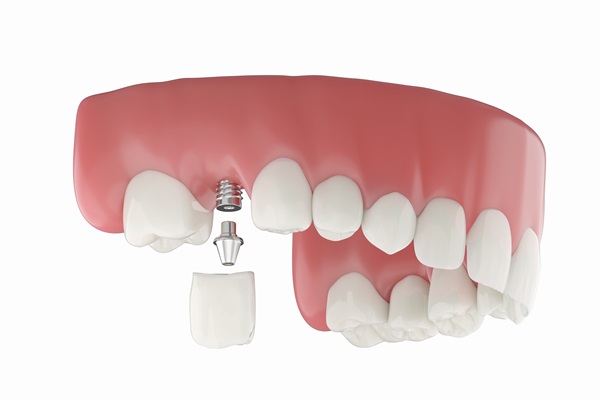Common Signs of TMJ Syndrome

Many people suffer from TMJ disorders, which affect the joints of the jaws. These disorders can be difficult to diagnose because the joint is very complex. Generally, about 12% of individuals in the United States have a TMJ disorder. Usually, women get this disorder more than men. Knowing more about the signs can help you get the treatment you need quickly.
Pain
One of the most common signs of TMJ syndrome is pain in the joint. Patients will feel pain while moving the jaw, such as during eating, talking or even yawning. However, pain can occur in other areas as well. For example, many patients get migraines or headaches, backaches and ear pain. If a patient is experiencing pain that is not near the jaw, a doctor will look for other symptoms first.
Sounds in the jaw
Another common symptom of TMJ syndrome is clicking, grinding or popping sounds in the jaw. This can happen while the patient is opening the mouth during talking and eating. Sometimes, a patient will feel like the jaw is “grating” against itself when chewing. It is important to note, however, that not every popping sound is a sign of TMJ. Popping sounds are very common for healthy jaws too.
However, if the sounds are accompanied by other symptoms, then the patient may have a TMJ disorder. Patients with TMJ syndrome may hear other odd sounds as well. This can include ringing, buzzing or even numbness in the ears. These sounds may happen with earaches.
Difficulty moving the jaw
Patients with TMJ disorders may have trouble fully opening the jaw. Others may not be able to move the jaw in some directions. This may be because the pain is too severe. However, it can also be because the jaw simply will not open more. This can cause problems in normal life, such as while eating.
Causes of TMJ disorders
There are many reasons why a patient may have developed a TMJ disorder. Every patient is different, so they should work with their dentist or doctor to determine potential causes. An injury to the area can trigger TMJ syndrome. Sometimes, arthritis can cause this problem too. A few other potential causes include:
- Autoimmune diseases
- Infections
- Surgery
- Bruxism
Sometimes, people are more likely to have TMJ because of genetic problems. Overuse problems can also cause this disorder. One example of this is violinists. These individuals use their jaws to hold the violin. The strain on the jaw can cause TMJ problems. While women experience TMJ more than men, more research is needed to determine why.
Visit a dentist today
TMJ will look different for different patients. However, the most common symptoms include jaw pain and an inability to completely open the jaw. Another symptom is popping or clicking sounds. Knowing what to look for can help you decide when you need to go to the dentist. A dentist can examine your jaw and the muscles in the area to diagnose you.
Request an appointment here: https://www.drjstearns.com or call Platte Valley Oral Surgery at (303) 997-0220 for an appointment in our Denver office.
Check out what others are saying about our dental services on Yelp: TMJ Dentist in Denver, CO.
Recent Posts
Wisdom teeth extraction may be necessary to achieve better dental health. Research shows that the third molars often emerge after all your teeth have erupted. Wisdom teeth may not be a problem at all. But in some cases, the dentist will recommend their removal. Here are the details on how a wisdom teeth extraction happens.This…
Single-tooth implants use dental implant technology to provide long-term and natural-looking solutions to tooth loss. Since losing only one tooth can impact oral health, function, and appearance, replacing the tooth must be a priority. Here is a closer look at the importance of individual tooth replacement and some compelling reasons to consider single-tooth implants.Having a…
Infections after dental procedures occur frequently and that is primarily due to a lack of education on how to avoid it, however, with the help of an oral surgeon, infections can be avoided in a few ways. Oral surgeons are dental professionals who focus on invasive procedures that are necessary in order to treat or…
Clinical studies show that the dental implant remains the gold standard of dental restorations. Implants can help bring back your smile and dental function. The right dental professional can perform the procedure without any issues. Here are the details on how an oral surgeon approaches a dental implant surgery.Choosing a dentist who has training and…


